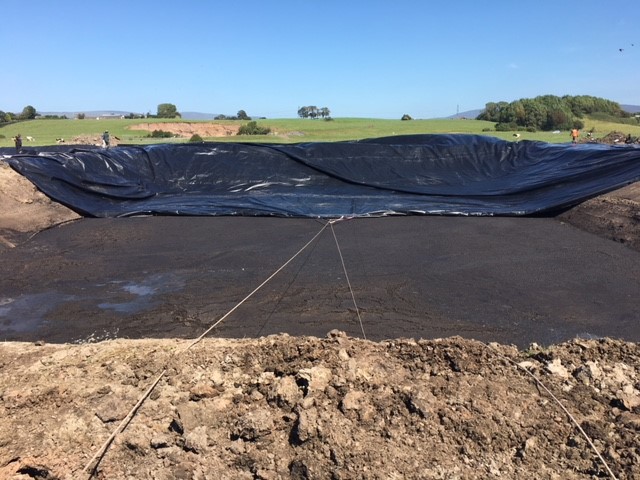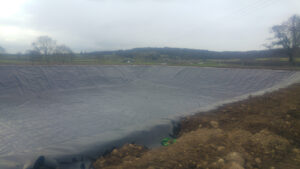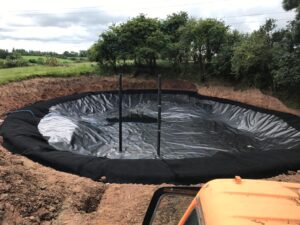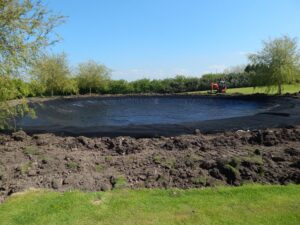In modern agriculture, sustainability stands as a pivotal goal. One pressing concern is the emission of ammonia, a potent gas with significant environmental impacts. Acknowledging this, various initiatives, like the Ammonia Reduction Grant Scheme, have emerged to support farmers in their endeavours towards reducing ammonia emissions. Amidst these initiatives, floating covers have emerged as a remarkable solution, fostering both sustainability and efficiency within farming practices.
Floating covers, primarily recognised for their use in liquid storage systems, play a critical role in minimising ammonia emissions. These covers act as a shield, effectively sealing off liquid storage units such as slurry lagoons, digestate tanks, or manure stores. By creating an impermeable barrier over these storage areas, floating covers significantly decrease the release of ammonia into the atmosphere.
The Ammonia Reduction Grant Scheme recognises the pivotal role of floating covers in this context by offering financial support to farmers adopting these innovative technologies. This scheme provides farmers with a means to invest in floating covers, thereby facilitating the reduction of ammonia emissions while ensuring operational efficiency and environmental sustainability.
One of the primary advantages of floating covers lies in their versatility and ease of implementation. These covers can be tailored to fit various storage systems, making them adaptable to different farm sizes and liquid storage configurations. Moreover, their installation is relatively straightforward, requiring minimal disruption to ongoing farm activities.
Beyond their immediate impact on ammonia reduction, floating covers offer additional benefits to farmers. They help in preserving nutrient content in stored liquids, preventing dilution caused by rainfall or evaporation. This ensures that the stored liquid retains its quality, maintaining its effectiveness as a nutrient-rich fertiliser when applied to crops, thereby enhancing agricultural productivity.
Furthermore, floating covers contribute to odour control, a significant concern for communities surrounding farming areas. By containing the emissions of ammonia and other volatile compounds, these covers aid in mitigating unpleasant odours, fostering better relationships between farming operations and neighbouring communities.
The adoption of floating covers aligns not only with environmental sustainability goals but also with economic viability for farmers. While initially an investment, the long-term benefits of reduced ammonia emissions, preserved nutrient content, and enhanced community relations outweigh the initial costs. Additionally, the support provided through the Ammonia Reduction Grant Scheme eases the financial burden, making these covers more accessible to a wider range of farming operations.
In conclusion, floating covers emerge as a practical and effective solution in the realm of agriculture, especially concerning ammonia reduction. Their role in the Ammonia Reduction Grant Scheme signifies their importance in promoting sustainable farming practices. By implementing these covers, farmers not only contribute to environmental preservation but also enhance their operational efficiency and community relations, paving the way for a more sustainable future in agriculture.
To find out more about our products and services and how we can help you, please contact us using the below –
Tel: 01695 228626
Email: enquiries@enviroseal.co.uk





